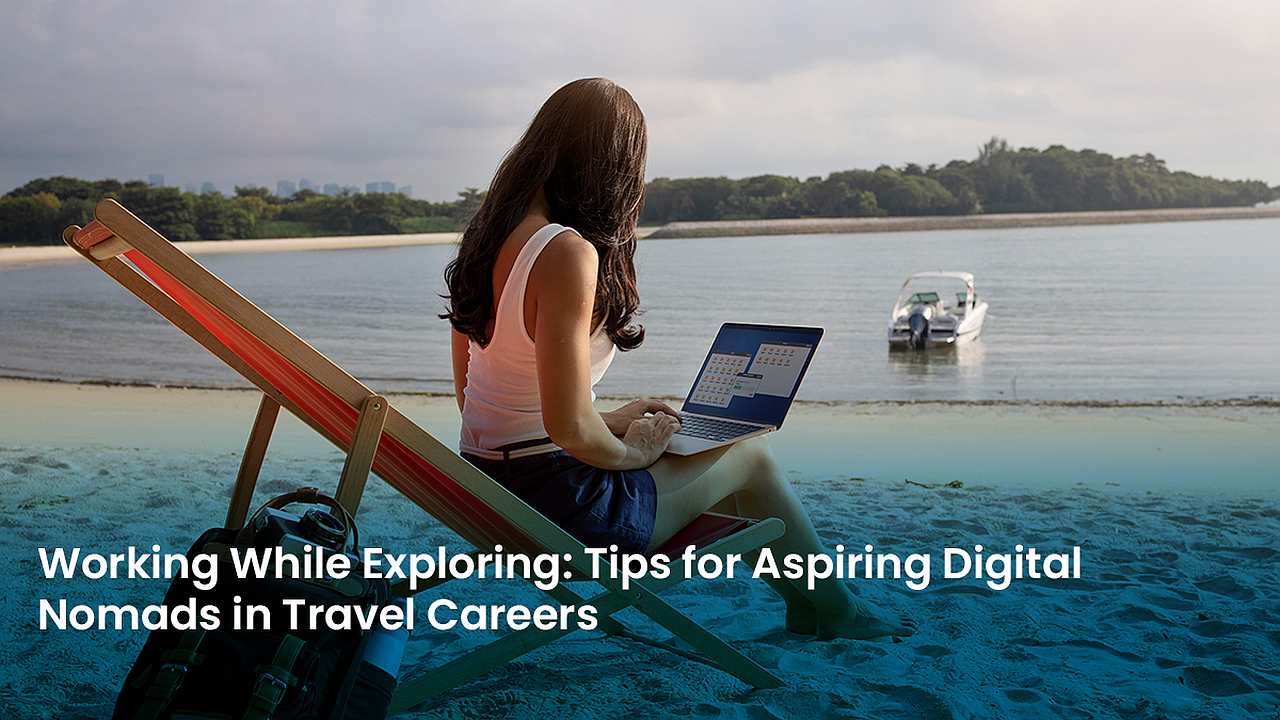- The number of travelers who are becoming more eco-conscious is growing. Thus, sustainability and eco-friendly travel are influencing how business operates in 2025.
- The pandemic has impacted the way people travel, with health and wellness now surging in popularity. Businesses offering yoga retreats, hot springs, and nutritious dining options are sure to keep up with the trend.
- Space travel is making a headline in the travel industry with businesses now showcasing this luxury experience.
The world of travel and tourism is constantly evolving. We cannot deny the fact that despite the challenging global conditions such as climate change, fluctuation of prices, security threats, and over-tourism, the desire of worldwide travelers remains unchanged, but rather transforming at warp speed.
Given that traveling is becoming more accessible to people due to the industry’s proactive campaigns on tourism, travelers has now more appetite and explore places and discover more authentic experiences—giving birth to 2025 as a new era for travel and tourism
Understanding and keeping up with these trends in the hospitality industry is crucial, especially for students and professionals who are looking to grow successfully in their field.
Let’s check these current trends that changing the future of travel and tourism.
Sustainable and Eco-Friendly Travel
Sustainability is no longer just a buzzword—it’s a major factor in travel decisions. Travelers are looking for ways to explore the world without harming the environment. From eco-friendly hotels to carbon-neutral flights, the industry is making big changes to reduce its impact on the planet. Airlines are investing in fuel-efficient aircraft, and hotels are adopting green initiatives like solar energy and plastic-free policies. Tourists are also choosing destinations that promote conservation and ethical tourism practices. This shift opens up exciting career paths in sustainable tourism management and eco-conscious hospitality services.
Digital Transformation in Hospitality
Technology continues to reshape the hospitality industry. Contactless check-ins, AI-powered customer service, and smart hotel rooms that adjust settings based on guest preferences are becoming the norm. Many hotels and airlines are using virtual reality (VR) to offer virtual tours before travelers even book their trips. Mobile apps now allow customers to book rooms, order services, and customize their stay with just a few taps. These advancements create new career opportunities for tech-savvy professionals who can merge technology with exceptional customer service.
The Rise of Remote Work and Workcations
The concept of blending work and travel is more popular than ever. Remote work allows professionals to take extended trips while keeping up with their jobs. Many hotels and resorts are catering to this trend by offering work-friendly accommodations with strong Wi-Fi, coworking spaces, and long-term stay discounts. Cities known for their vibrant culture and affordability, such as Lisbon and Bali, are becoming hotspots for digital nomads. This shift means that professionals in the travel industry must adapt by creating experiences tailored for remote workers and long-term travelers.
Personalized and Experiential Travel
Modern travelers are seeking more than just sightseeing. They want meaningful experiences, such as cooking with locals in Italy, learning traditional dances in South America, or joining conservation projects in Africa. Instead of generic travel packages, people are opting for trips that match their interests and passions. This trend is shaping the way travel agencies, tour operators, and hospitality businesses design their services. Professionals who specialize in curating personalized experiences will be in high demand.
Health and Wellness Tourism
More people are prioritizing health and well-being during their travels. Destinations that offer wellness retreats, spa resorts, and outdoor activities are seeing a surge in visitors. Yoga retreats in Bali, hot spring resorts in Japan, and adventure treks in the Himalayas are attracting travelers who want to relax, recharge, and improve their well-being. Hotels are also integrating wellness programs into their services, offering fitness centers, nutritious dining options, and meditation spaces. This growing trend is opening up career opportunities for wellness-focused hospitality professionals.
Growth of Space Tourism
What once seemed like science fiction is now becoming reality. Space tourism is making headlines as private companies push the boundaries of travel beyond Earth. While it remains a luxury experience for now, the industry is expected to expand in the coming years. Aspiring professionals in aviation and aerospace hospitality may find exciting roles in this futuristic sector, ranging from space travel coordination to zero-gravity tourism experiences.
How Eton College Prepares You for the Future of Travel
With the evolving landscape of travel, professionals need the right training to succeed in this fast-paced industry. Eton College’s Flight Attendant Preparation Program equips students with the skills and knowledge needed to adapt to these trends. From customer service excellence to aviation safety and cultural awareness, the program prepares students to excel in travel industry careers. Whether you aspire to be a flight attendant, hospitality manager, or tourism expert, Eton College provides hands-on experience and certifications that will set you apart in the job market.
Are You Ready To Welcome The Future Of Travel?
The travel industry is entering an exciting phase, with new trends shaping the way people explore the world. Sustainability, technology, personalized experiences, and wellness tourism are driving changes that create fresh opportunities for aspiring professionals. Staying informed about these shifts will help you prepare for a dynamic and rewarding career in hospitality and tourism. With the right training and mindset, you can turn your passion for travel into a thriving profession.
FAQs
Q: How is sustainability shaping the travel industry?
A: More businesses are adopting eco-friendly practices, such as using renewable energy, reducing plastic waste, and supporting conservation efforts.
Q: What career opportunities are emerging from digital transformation in hospitality?
A: Roles in AI-driven customer service, smart hotel management, and virtual reality tourism are growing as technology advances.
Q: How does the rise of remote work affect the travel industry?
A: More people are choosing long-term stays in work-friendly destinations, leading to increased demand for accommodations with strong Wi-Fi and coworking spaces.
Q: What is experiential travel, and why is it popular?
A: Experiential travel focuses on hands-on cultural and adventure experiences, such as cooking classes, wildlife conservation, and historical tours.
Q: Does Eton College offer training for these emerging travel trends?
A: Yes! Eton College prepares students for dynamic careers in travel and hospitality with practical training and industry certifications.



